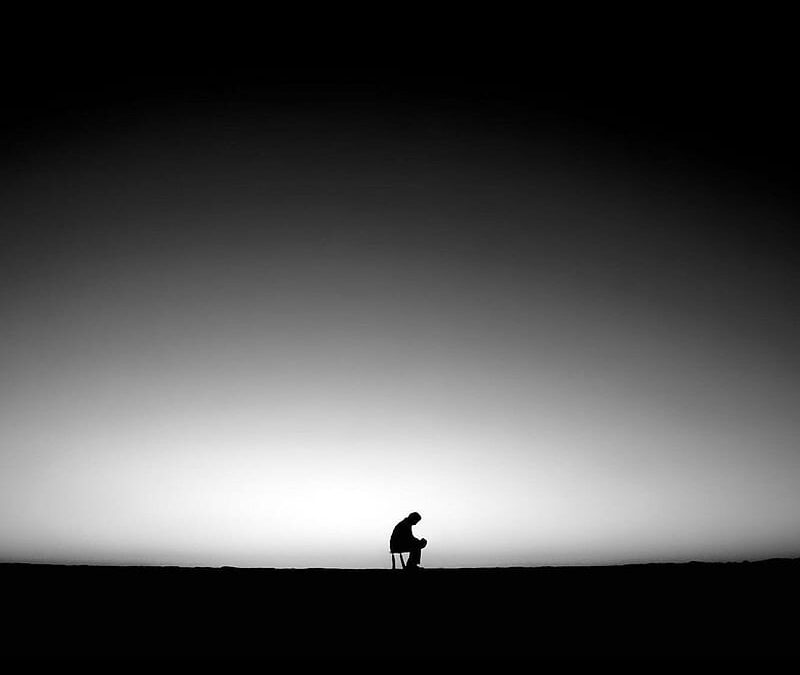“The Struggle is Real,” they say. Indeed, pain and suffering are undeniable realities of life. Yet,
amidst the darkest of times, God’s presence remains steadfast.
For believers, faith often serves as an anchor during trials and tribulations. However, some
experiences shake even the strongest convictions to their core. Today, I share a profoundly
personal journey—a voyage through the abyss of losing a loved one to suicide and the
miraculous path God has illuminated, leading me from despair to redemption.
In 2019, my world crumbled with the devastating loss of my wife to suicide at the age of 48. Left
behind were our two sons, ages 16 and 18, and me, grappling with the overwhelming grief and
unanswerable questions that accompany such a tragic event. Amidst my anguish, I clung to my
faith, seeking solace and comprehension from the Divine.
Days turned into weeks, weeks into months, as we navigated the turbulent sea of grief. Each
day presented new challenges, stark reminders of the chasm in our lives left by my wife’s
absence. Yet, through it all, God’s faithfulness endured. He bestowed strength in moments of
weakness, solace in times of agony, and hope in the face of despair.
In the moments of despair, I encountered a beacon of light—Michelle Dooley. A fellow widow,
Michelle understood my sorrow in a profound manner. In 2021, we united in marriage—a bond
forged not only by love but by shared experiences of loss and redemption.
Through Michelle’s unwavering support and God’s grace, I commenced my journey towards
healing. Together, we embarked on a path of restoration, discovering joy in each new day and
gratitude for the blessings surrounding us.
Nevertheless, scars from suicide loss run deep, and the road to healing is fraught with
challenges. It’s a journey marked by pain, guilt, and countless unanswered questions—a
journey that tests the boundaries of faith and implores us to cling to hope in the darkest hours.
If you find yourself traversing this path, know you’re not alone. Amidst despair, there’s hope;
amidst brokenness, there’s healing. Reach out to your support network—friends, family, or
members of your faith community—and allow them to accompany you on this expedition. Above
all, remember that God walks alongside you, even through the darkest of nights.
As we contemplate the anguish of suicide loss, let’s also remember those left behind—the
spouses, children, friends burdened by the trauma of it all. Let’s extend grace,
compassion, and empathy to those grappling with their struggles, offering the love and support
they desperately need.

May we serve as beacons of hope in a world enshrouded in darkness, guiding others towards
the radiant light of God’s love and redemption.
In the aftermath of my wife’s passing, I found myself wrestling with profound questions about
life, death, and the nature of suffering. Why did this happen? Could I have done something to
prevent it? Where was God in all of this? These questions consumed my thoughts, leading me
to seek answers in prayer, scripture, and conversations with fellow believers.
Through this process, I came to realize that faith is not about having all the answers; rather, it’s
about trusting in God’s goodness and faithfulness, even when we don’t understand His ways. As
the psalmist writes, “Even though I walk through the darkest valley, I will fear no evil, for you are
with me; your rod and your staff, they comfort me” (Psalm 23:4, NIV). I learned how strong my own will had been and where much of my confidence had rested in an expected life ahead.
This realization didn’t make the pain go away, but it did provide me with a sense of peace and
assurance that God was with me, even in the midst of my suffering. It allowed me to release my
grip on trying to understand the why and instead focus on trusting God’s plan for my life. It was either gonna be me leaning on me or me leaning on Christ.
One of the most challenging aspects of navigating suicide loss is the stigma and shame that
often surround it. Society’s misunderstanding of mental illness and suicide can lead to feelings
of isolation and guilt for those left behind. I wrestled with these feelings myself, wondering if
there was something I could have done differently to prevent my wife’s death.
But as I delved deeper into my faith, I came to realize that shame has no place in God’s
kingdom. Jesus himself was acquainted with grief and suffering, and He bore our shame on the
cross so that we might be free. As the apostle Paul writes, “There is now no condemnation for
those who are in Christ Jesus” (Romans 8:1, NIV).
This truth set me free from the burden of shame and allowed me to embrace my role as a
survivor of suicide loss. Instead of hiding in the shadows, I began to speak openly about my
experiences, hoping to break down the stigma surrounding mental illness and suicide and offer
hope to others who may be struggling.
Through it all, I’ve learned that healing is not a linear process. There are good days and bad
days, moments of triumph and moments of setback. But through the ups and downs, God
remains constant. He is the anchor that holds me steady in the midst of life’s storms, the rock on
which I build my foundation.
As I look back on my journey through suicide loss, I’m amazed by the ways in which God has
brought beauty from ashes, light from darkness. He has taken my brokenness and transformed
it into something beautiful, something redemptive. And while I may never fully understand the
why behind my wife’s death, I trust that God has a purpose and a plan for it all.
So, to anyone who finds themselves walking a similar path, I offer these words of
encouragement: Hold fast to your faith, even when it feels like the ground beneath you is
crumbling. Lean on your support network, and don’t be afraid to ask for help when you need it.
And above all, remember that you are not alone. God is with you, guiding you through the
darkness and leading you into the light of His love and redemption.






